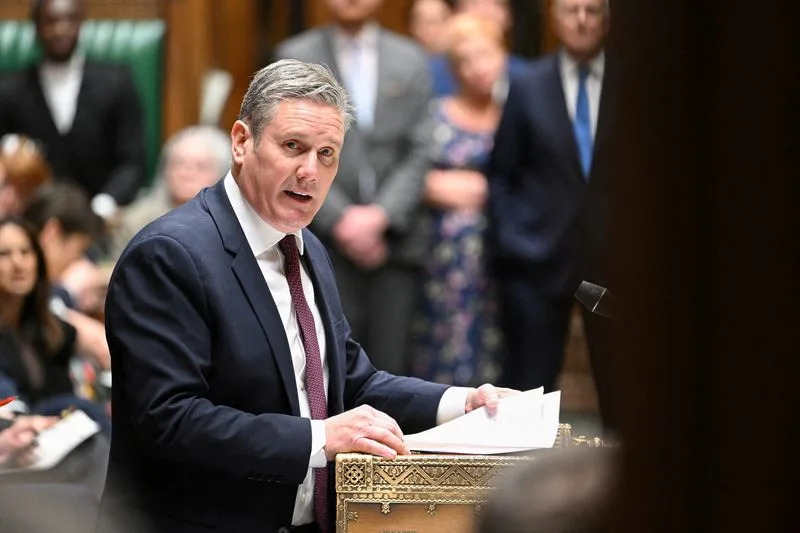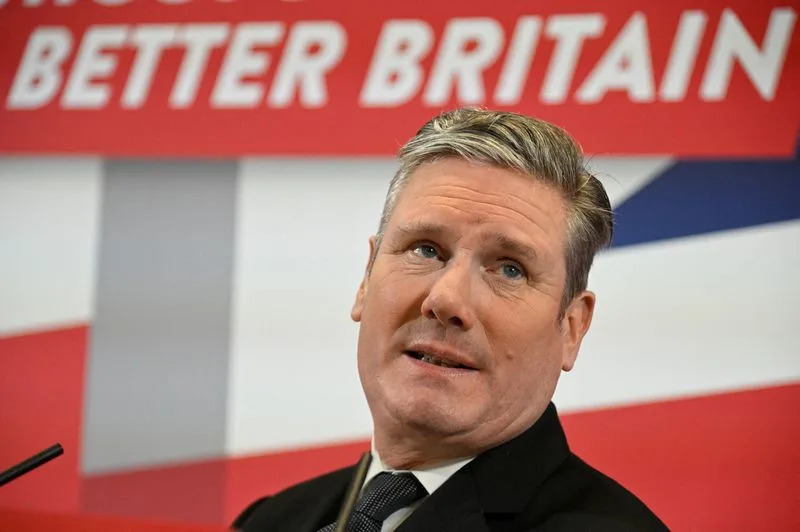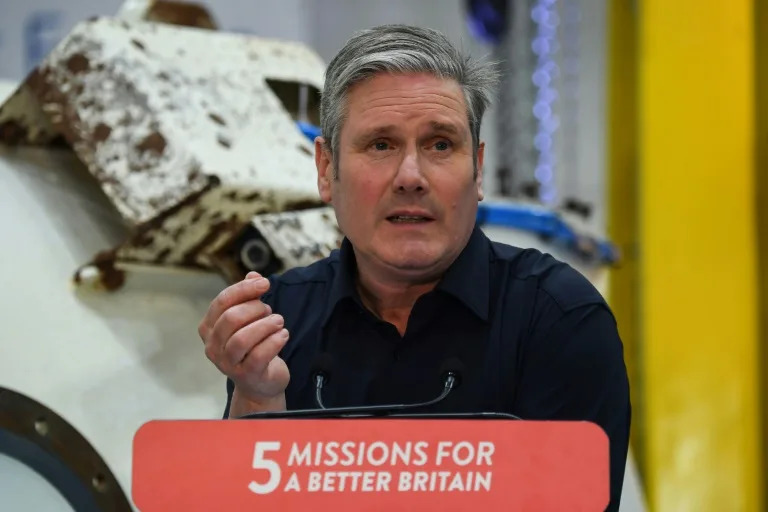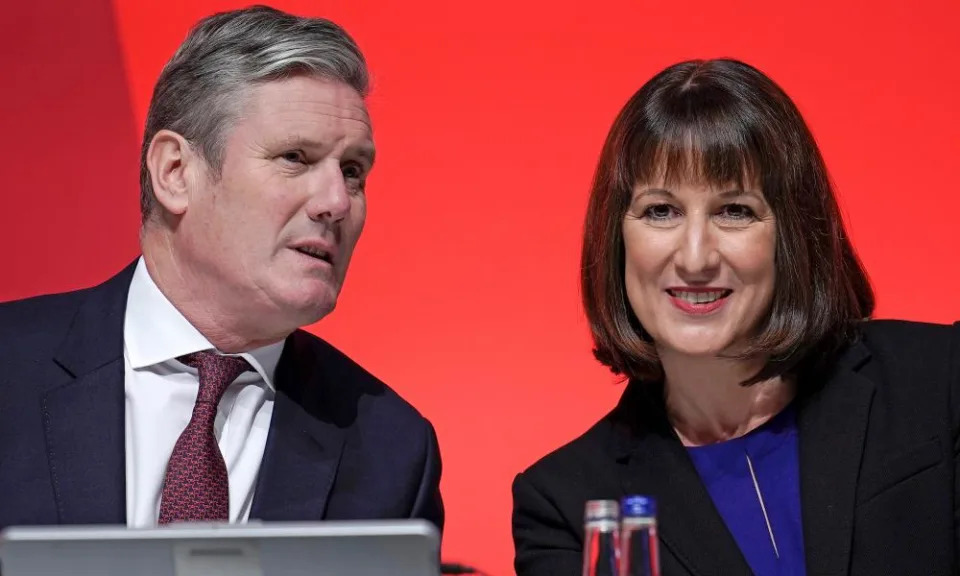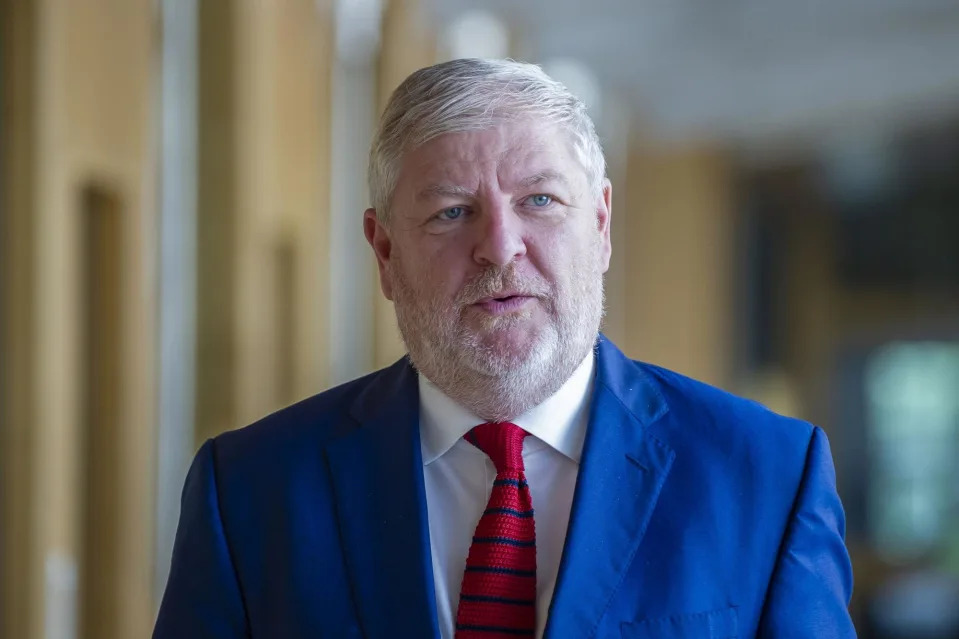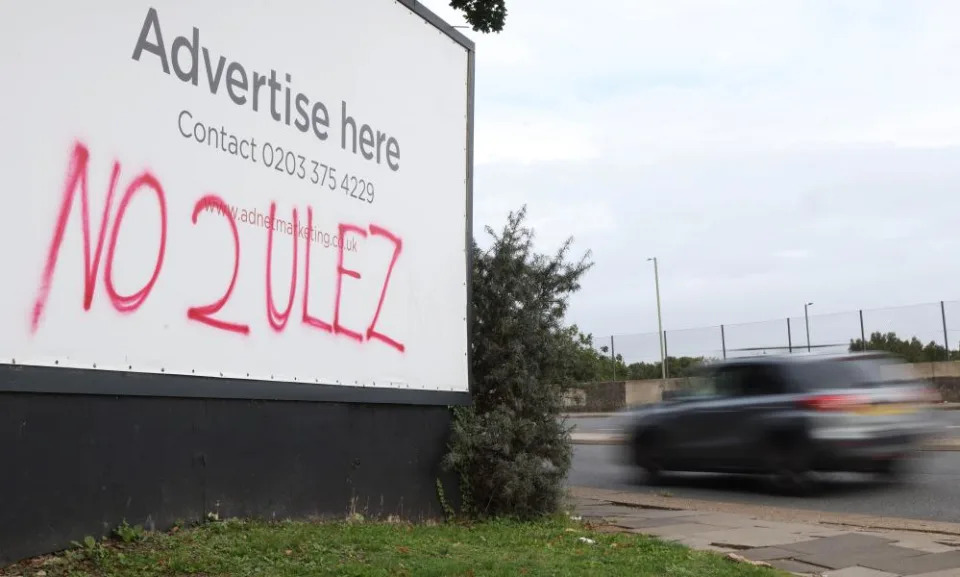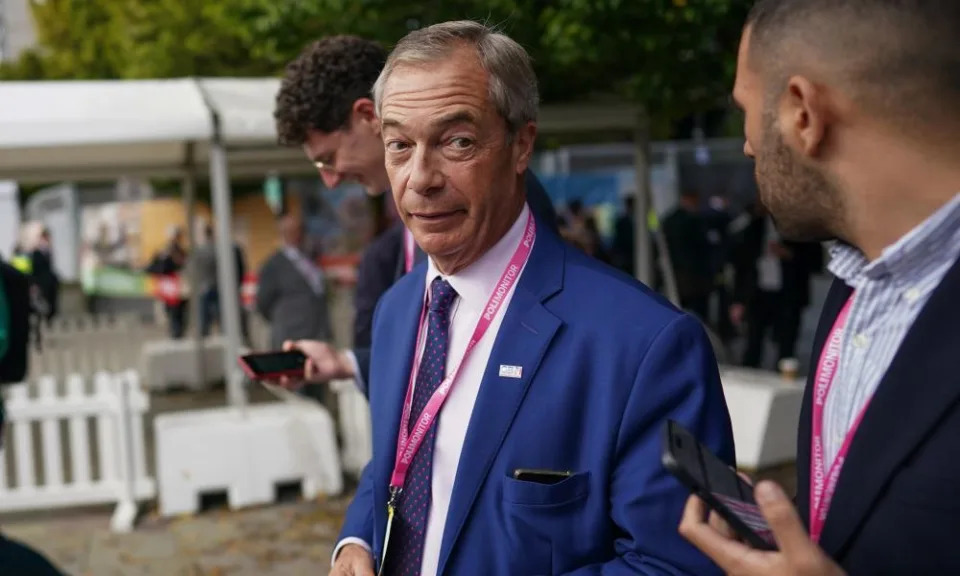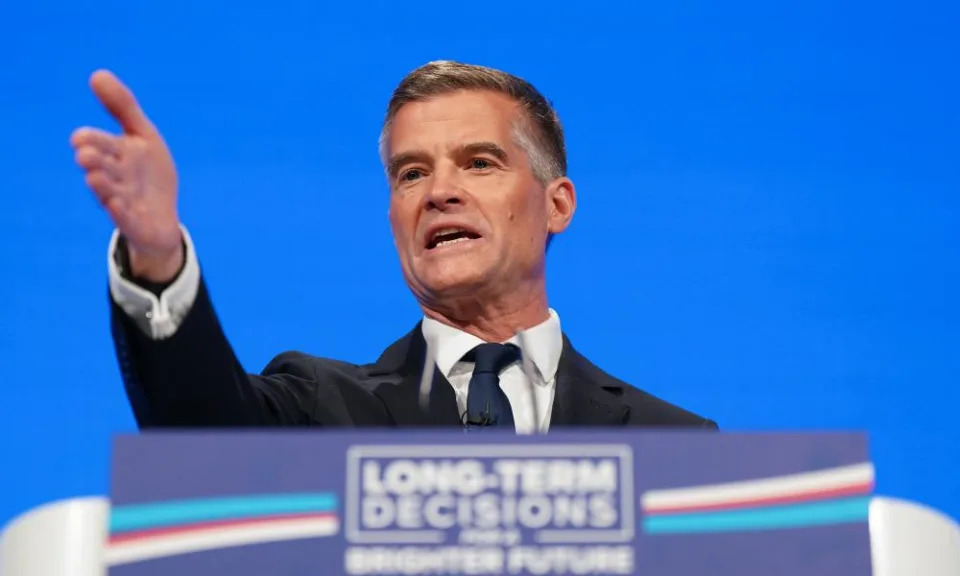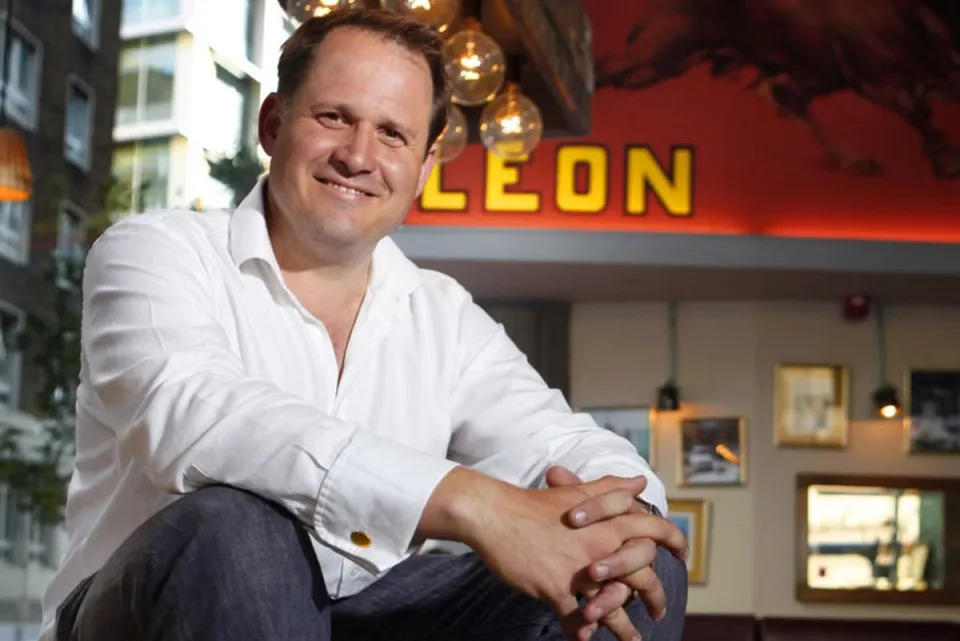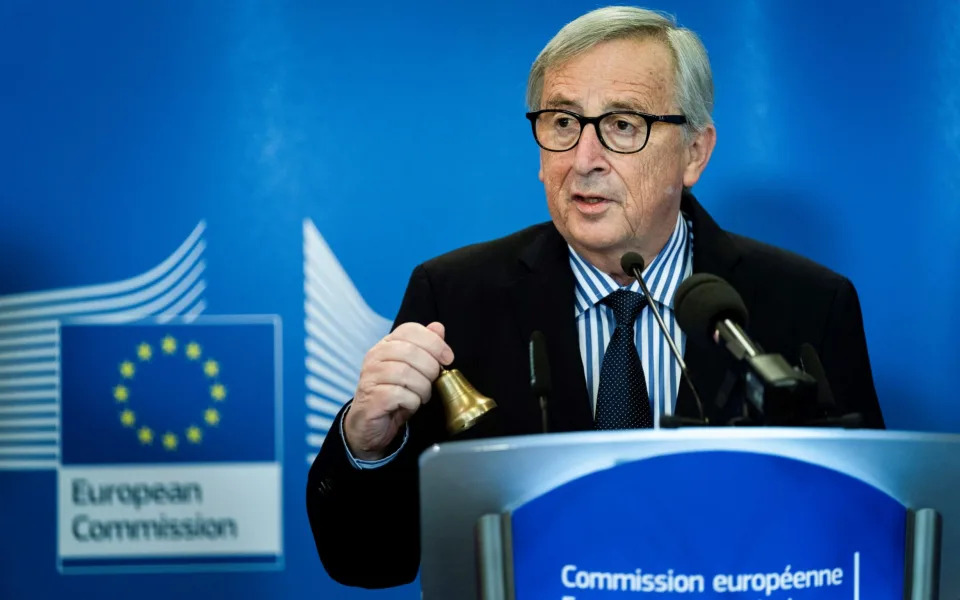Sir Keir Starmer criticises PM for failing to mention cost of living crisis as families struggle to get baby formula
Sky News
Updated Thu, 5 October 2023
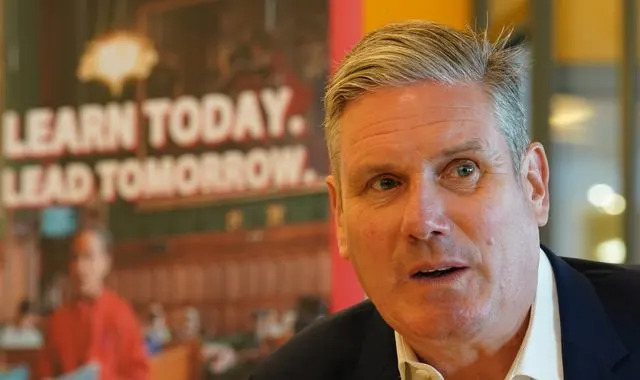
Sir Keir Starmer has criticised Rishi Sunak for failing to address the rising cost of living in his party conference speech after Sky News revealed how families are struggling to afford baby formula.
The Labour leader was asked if he would commit to more support for struggling families after the report, which found that formula milk was being rationed by baby banks to cope with a surge in demand.
Sir Keir said the development was a "terrible story" in the ongoing crisis, which he described as the "single most pressing issue of our time".
He criticised the prime minister for failing to adequately mention the impact that the cost of living crisis has had on households across the UK.
"I'm pretty astonished that in an hour-long address yesterday, the prime minister didn't address the cost of living crisis," Sir Keir told reporters.
"He says that the last 30 years have been a failure and that we need change.
Sunak in Spain for summit after dodging questions on Braverman - politics latest
"He's right about that, but he can't be the change because he's been the nodding dog nodding through the decisions that he now says were part of that failure.
"The change we need is a change from the Tories, not more Tories."
Data from First Steps Nutrition shows average prices of baby formula have risen 24% over the past two years.
The issue has become so severe that there have been calls for a price cap to help families who are struggling to feed their children.
In May, Sky News revealed the desperate measures parents are taking to feed their babies due to the rising costs - including stealing formula or watering down milk or substituting condensed milk for formula.
One mother, 23-year-old Kayla from Swindon, told Sky News "it is literally a milk crisis" as she accused the government of "not listening".
A government spokesperson said: "We recognise the impact that rising prices are having at home, which is why halving inflation is our top priority and why we are providing significant support worth on average £3,300 per household.
"This includes uplifting benefits and delivering direct cash payments, while also delivering a record cash increase to the National Minimum Wage."
Read more:
Inside the baby banks rationing formula milk to one tin per family each week
Fuel retailers deny profiteering as pump prices shoot up
They said the value of Health Start - a programme that entitles women who are 10 weeks pregnant or have a child under four to help to buy healthy food and milk - had risen from £3.10 to £4.25 per week.
"Eligible children aged under one can each receive £8.50 in total per week, a rise from £6.20 a week," they added.
In his conference speech, Mr Sunak made reference to the rising cost of living in the context of his desire to halve inflation.
Liberal Democrat deputy leader Daisy Cooper also criticised the prime minister's conference speech, saying he had "nothing new to say on the big issues facing families, from the cost of living crisis to local health services that have been run into the ground".
Sky News
Updated Thu, 5 October 2023

Sir Keir Starmer has criticised Rishi Sunak for failing to address the rising cost of living in his party conference speech after Sky News revealed how families are struggling to afford baby formula.
The Labour leader was asked if he would commit to more support for struggling families after the report, which found that formula milk was being rationed by baby banks to cope with a surge in demand.
Sir Keir said the development was a "terrible story" in the ongoing crisis, which he described as the "single most pressing issue of our time".
He criticised the prime minister for failing to adequately mention the impact that the cost of living crisis has had on households across the UK.
"I'm pretty astonished that in an hour-long address yesterday, the prime minister didn't address the cost of living crisis," Sir Keir told reporters.
"He says that the last 30 years have been a failure and that we need change.
Sunak in Spain for summit after dodging questions on Braverman - politics latest
"He's right about that, but he can't be the change because he's been the nodding dog nodding through the decisions that he now says were part of that failure.
"The change we need is a change from the Tories, not more Tories."
Data from First Steps Nutrition shows average prices of baby formula have risen 24% over the past two years.
The issue has become so severe that there have been calls for a price cap to help families who are struggling to feed their children.
In May, Sky News revealed the desperate measures parents are taking to feed their babies due to the rising costs - including stealing formula or watering down milk or substituting condensed milk for formula.
One mother, 23-year-old Kayla from Swindon, told Sky News "it is literally a milk crisis" as she accused the government of "not listening".
A government spokesperson said: "We recognise the impact that rising prices are having at home, which is why halving inflation is our top priority and why we are providing significant support worth on average £3,300 per household.
"This includes uplifting benefits and delivering direct cash payments, while also delivering a record cash increase to the National Minimum Wage."
Read more:
Inside the baby banks rationing formula milk to one tin per family each week
Fuel retailers deny profiteering as pump prices shoot up
They said the value of Health Start - a programme that entitles women who are 10 weeks pregnant or have a child under four to help to buy healthy food and milk - had risen from £3.10 to £4.25 per week.
"Eligible children aged under one can each receive £8.50 in total per week, a rise from £6.20 a week," they added.
In his conference speech, Mr Sunak made reference to the rising cost of living in the context of his desire to halve inflation.
Liberal Democrat deputy leader Daisy Cooper also criticised the prime minister's conference speech, saying he had "nothing new to say on the big issues facing families, from the cost of living crisis to local health services that have been run into the ground".
Labour leader Starmer: I can't commit to reversing HS2 decision
Reuters
Thu, 5 October 2023

Reuters
Thu, 5 October 2023

Britain's Labour Party holds annual conference, in Brighton
LONDON (Reuters) - British opposition Labour Party leader Keir Starmer said on Thursday he could not commit to reversing Prime Minister Rishi Sunak's decision to cancel part of the HS2 high-speed rail project if he wins an election expected next year.
Sunak on Wednesday scrapped the northern leg of the costly project and pledged to invest billions of pounds in local rail and road links instead, saying it was more suitable for a post-pandemic world.
Business groups and trade unions criticised the decision to cut in half Britain's biggest infrastructure project, warning the move would hit productivity, cause job losses and put more lorries on the roads.
"I can't stand here and give a commitment to reversing that decision. They have taken a wrecking ball to it," Starmer told reporters when asked what Labour would do.
Sunak's Conservatives, who have been in power since 2010, are badly lagging Labour in opinion polls, with a Savanta poll published on Wednesday giving Labour a 19-point lead.
In a separate interview with ITV, Starmer said Labour had wanted HS2 in full but that the government was now about to cancel contracts and release land it had bought for the project.
Starmer said he would work with regional leaders to ensure there are sufficient transport links between and within cities.
"Wherever there are projects that the government has announced it's going to do, then we'll obviously continue with them, that's very, very important," he told ITV.
HS2 was designed to connect London with major cities in central and northern England. But costs soared to over 106 billion pounds ($129 billion), according to a 2020 estimate, from the 56 billion pounds forecast in 2015. The eastern link to Leeds had already been scrapped.
($1 = 0.8216 pounds)
(Reporting by Kylie MacLellan; Editing by Sachin Ravikumar)
LONDON (Reuters) - British opposition Labour Party leader Keir Starmer said on Thursday he could not commit to reversing Prime Minister Rishi Sunak's decision to cancel part of the HS2 high-speed rail project if he wins an election expected next year.
Sunak on Wednesday scrapped the northern leg of the costly project and pledged to invest billions of pounds in local rail and road links instead, saying it was more suitable for a post-pandemic world.
Business groups and trade unions criticised the decision to cut in half Britain's biggest infrastructure project, warning the move would hit productivity, cause job losses and put more lorries on the roads.
"I can't stand here and give a commitment to reversing that decision. They have taken a wrecking ball to it," Starmer told reporters when asked what Labour would do.
Sunak's Conservatives, who have been in power since 2010, are badly lagging Labour in opinion polls, with a Savanta poll published on Wednesday giving Labour a 19-point lead.
In a separate interview with ITV, Starmer said Labour had wanted HS2 in full but that the government was now about to cancel contracts and release land it had bought for the project.
Starmer said he would work with regional leaders to ensure there are sufficient transport links between and within cities.
"Wherever there are projects that the government has announced it's going to do, then we'll obviously continue with them, that's very, very important," he told ITV.
HS2 was designed to connect London with major cities in central and northern England. But costs soared to over 106 billion pounds ($129 billion), according to a 2020 estimate, from the 56 billion pounds forecast in 2015. The eastern link to Leeds had already been scrapped.
($1 = 0.8216 pounds)
(Reporting by Kylie MacLellan; Editing by Sachin Ravikumar)
